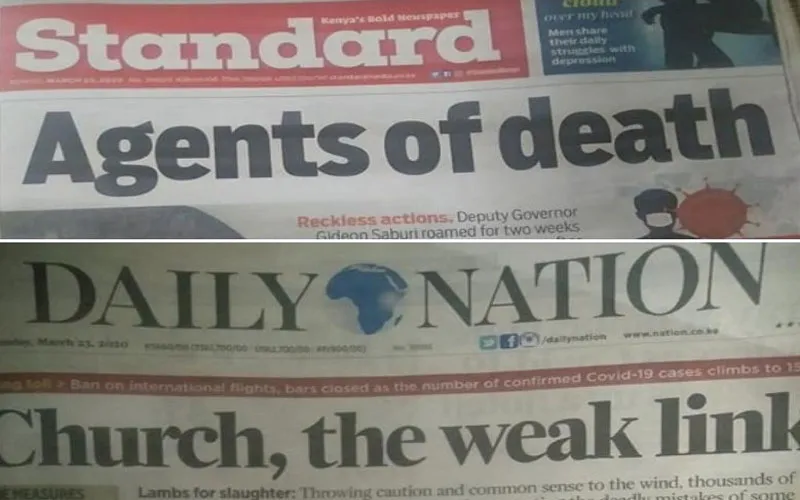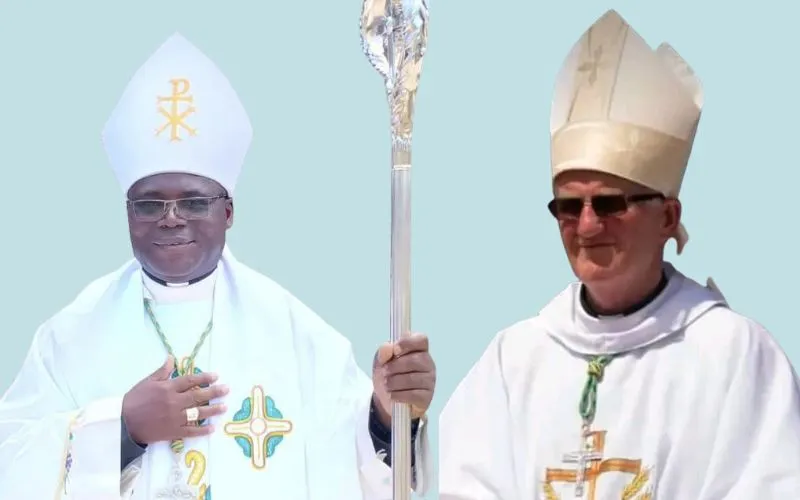Nairobi, 25 March, 2020 / 6:54 am (ACI Africa).
The recent negative media framing of the Church in Kenya as “a weak link” and “an agent of death” has been condemned and termed unethical, with a section of Catholics in the East African nation calling on the institution that regulates media standards, the Media Council of Kenya (MCK), to sanction the implicated media outlets.
The reaction follows the editorial decision by two leading newspapers in Kenya, Daily Nation and The Standard, to devote the prominent pages of their respective Monday, March 23 editions to headlines and narratives that painted the Church in negative light, prompted by the Catholic Bishops’ collective stance that “Churches will remain open” for public Mass.
In their March 19 message, the Kenya Conference of Catholic Bishops (KCCB) announced that Churches would remain open as “the focal point of prayer, where you will find solace and strength from God” even as the government had suspended public gatherings.
Daily Nation, which carried the headline “Church, the weak link,” devoted the first six pages to this negative framing of the followers of Christ in a country where Christianity is the predominant religion accounting for an estimated 84.8 percent of the population.
Running the story under the subheading “Lambs of slaughter,” the 62-year-old Kenyan newspaper known to have the highest circulation in Kenya criticized Kenyans who went for public worship as having thrown “caution and common sense to the wind” and “repeating the deadly mistakes of some of the countries that are now burying their dead by the truckloads.”








